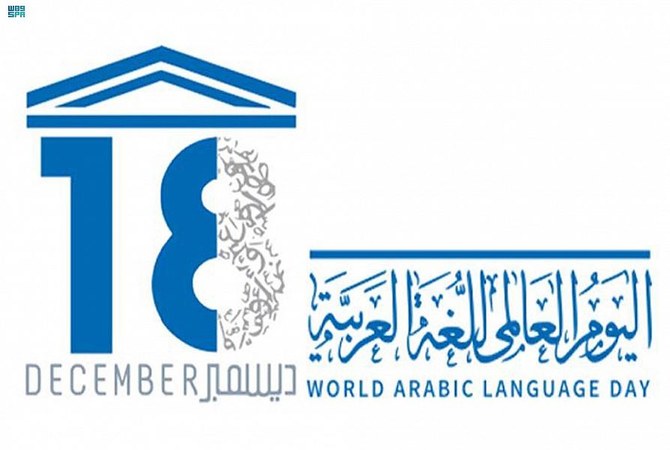JEDDAH: The Kingdom has taken a lead in raising the profile of the Arabic language locally, regionally and internationally, promoting the language of the Holy Qur’an and having vast experience in teaching the Arabic language to speakers of other languages. That comes in celebration of World Arabic Language Day on Dec. 18, with this year’s theme being “Arabic Language, a bridge between civilizations”.
The Saudi Ministry of Education is asserting its historic role in building a bridge between cultures and peoples and reiterating its contributions to knowledge and science, identity-strengthening, cultural diversity and world dialogue and peace.
The ministry is holding a celebration at its headquarters today to highlight the efforts of the leadership in serving the Arabic language, contributing to disseminating its science and culture and providing scholarships to beneficiaries from all around the world.
On World Arabic Language Day, the ministry is promoting the participation of education departments, schools, universities and Saudi schools abroad, as well as organizing activities and events that strengthen the Arabic language, in person or remotely through the Madrasati (My School) and Rawdati (My Kindergarten) platforms and the Ain educational channel.
The ministry continues to serve the Arabic language and showcase its importance by developing the Arabic language curricula, increasing the application of linguistics in school curricula and enhancing students’ comprehension skills. It has dedicated five to 10 minutes of reading and writing at the beginning of courses and organized contests and events dedicated to Arabic calligraphy and language. It has also strengthened the use of the Arabic language in educational institutions as a communication language, encouraged scientific translations from foreign languages into Arabic and established universities and departments dedicated to the language in government and private universities.
Furthermore, the ministry is providing programs to teach the language to non-Arabic speakers in Saudi schools abroad, as well as serving exchange students and Arabic and Islamic communities and introducing the Arabic culture widely.
King Abdulaziz University (KAU) supports the teaching of the Arabic language, harnessing all its practical and managerial potential to advance the language. KAU accommodates a department for the Arabic language and literature and an Arabic Language Institute for speakers of other languages. The university prides itself in its teaching of the language to non-Arabic speakers, presenting the Arabic culture with advanced technology and effective partnerships and offering educational programs such as a general diploma, postgraduate studies, Arabic short courses and Arabic for special purposes such as for workers in medicine. It also accommodates a center for translation and a center for research excellence in the Arabic language.
The “Mubeen” project at King Abdulaziz University is considered a landmark in raising the profile of the Arabic language in the community. Makkah Gov. Prince Khalid Al-Faisal gave the order to start implementing the project on an area of 11,000 square meters.
KAU adopted the project to raise awareness on the importance of the Holy Qur’an, with the continuous follow-up of Dr. Abdulrahman Obaid Al-Youbi, president of KAU, to showcase the importance of the Arabic language. It is considered one of the university’s greatest goals to maintain the language as a focus to preserve our identity. The project aims to promote the sustainability of all linguistic programs and initiatives that aim to serve the Arabic language.
Prince Khalid Al-Faisal also launched the first international conference entitled “Arabic Language and Digital Transformation” at the Jeddah Principality headquarters. The event was organized by the Endowment for the Language of the Qur’an at KAU within the activities of the Makkah Cultural Forum under the slogan “How to be a role model in the digital world.” A yearly award entitled “The Holy Qur’an Award” will also be given with the support of Prince Khalid Al-Faisal.
The conference included dialogue sessions about the importance of the Arabic language. It honored the late Dr. Mohammed Khodr Oreif for his literary, cultural and linguistic contributions and was attended by academics and specialists

























